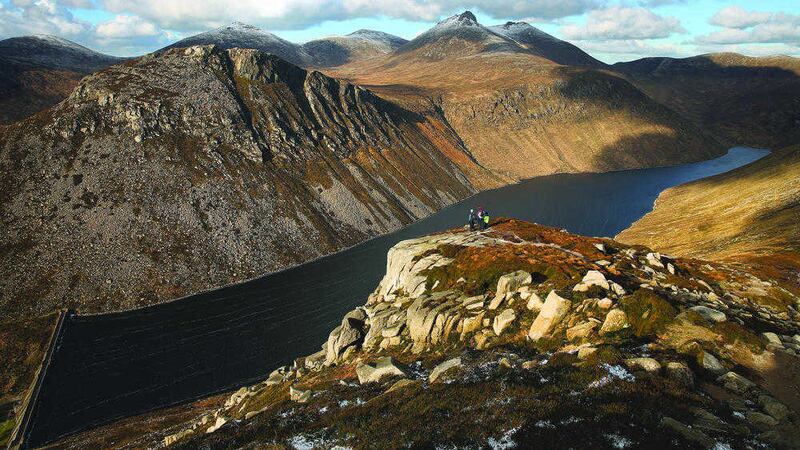FROM the snowy peaks of the Cairngorms in the Highlands, to the rugged open spaces of Dartmoor in Devon, national parks have helped protect some of the most valuable landscapes of England, Scotland and Wales for the past 65 years.
Northern Ireland is the only part of the UK not to have a national park.
You might remember a few years ago that there was a big debate about the issue. Years of consultation took place over plans for 220 sq m of national park in the Mournes. But today, Northern Ireland remains without one, despite its stunning landscape.
We at RICS believe that this merits another look as a way to protect Northern Ireland’s natural heritage. We think the issue should be revisited and carefully considered again.
This is one of the things we are calling for in our Rural Policy Paper for Northern Ireland. There are clearly many merits to the concept that Northern Ireland could benefit from.
There are other things that the Northern Ireland Executive should be doing as well to develop vibrant, strong rural communities.
RICS welcomes the advances towards a rural proofing bill and urges that ‘rural proofing’ becomes a fundamental part of the policy making process. Rural proofing is the process by which all major policies and strategies are assessed to determine whether they have a differential impact on rural areas and, where appropriate, adjustments are made to take account of particular rural circumstances.
Through the Rural Development Programme (RDP) 2014 – 2020, the NI Executive should prioritise increasing efficiency within the agri sector, addressing the risk of land abandonment, the lack of skills, and the ageing farming population.
RICS would recommend the development of a Northern Ireland land use strategy to support the programme for government, and to provide strategic guidance to assist sustainable and viable planning, development and management of diverse land use and protection of the landscape.
We would encourage the NI Executive to recognise the importance of eco-system services and the potential for their valuation and payment, to help the viability of many Northern Ireland farms and increase overall landscape quality and biodiversity.
We also strongly believe that investment in skills training in the land-based sector is essential to grow the success of the farming and forestry industries. Exploring options to encourage further uptake of broadband services in rural communities is also essential.
In addition, we would like to see high quality retrofit of existing housing being incentivised by the Northern Ireland Executive to address rural housing supply and the 51 percent of households living in rural areas that are currently in fuel poverty.
Rural communities are key to Northern Ireland’s wider economy and sustainable living; however, they face unique challenges of local economic growth and infrastructure provision. Policy-making must emphasise rural proofing and value the diverse natural resources that the rural environment provides.
Local authorities must be encouraged and supported in their new role to ensure that key urban-rural linkages, communities, local economies, landscape character and future impacts on land availability are reflected in local development plans.
Land based business should be supported, not only through rural proofing, but also through enabling the right conditions for growth. The NI Executive should encourage private match funding and investment to drive forward alternative energy sources in rural communities, progress apprenticeships, and ensure provision of affordable rural housing and transport services.
Approximately 35 per cent of the population in Northern Ireland live in rural areas and working to ensure that rural communities are strong and vibrant is an essential part of having a successful economy.
:: Ben Collins is director of the Royal Institution of Chartered Surveyors (RICS) in Northern Ireland, which has 3,000 members employed in the land, property and construction markets and in associated environmental issues








